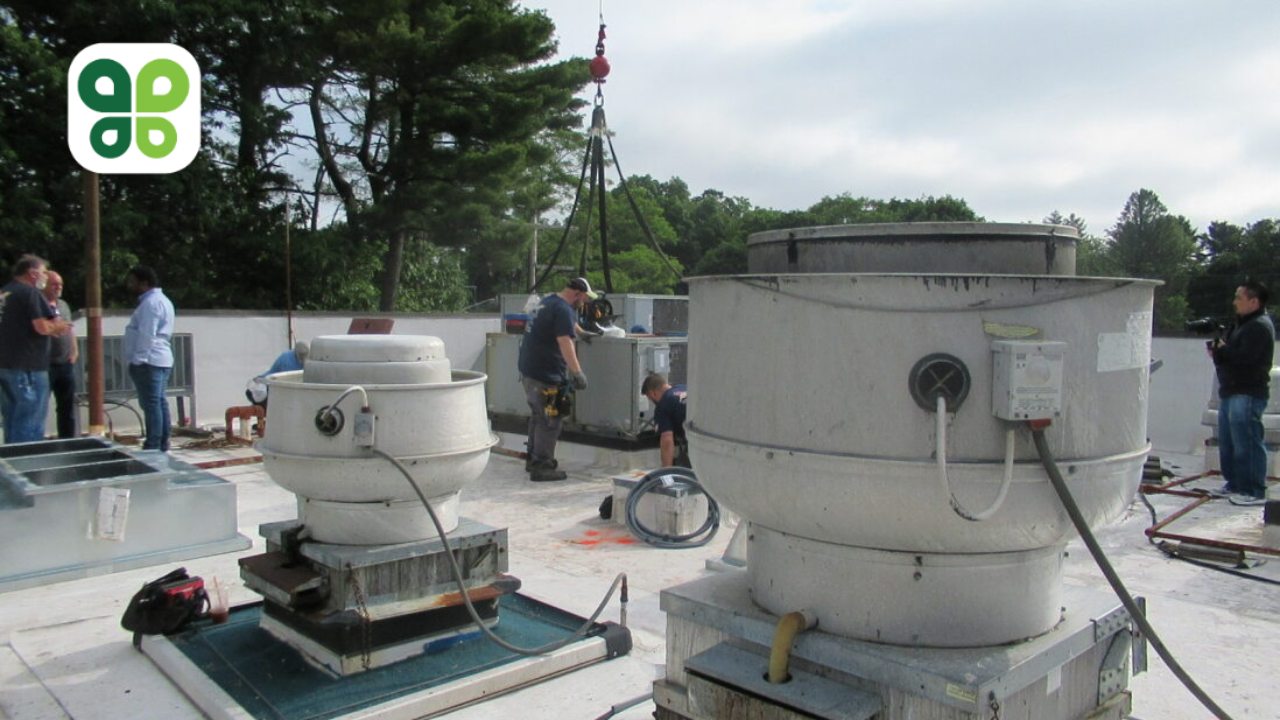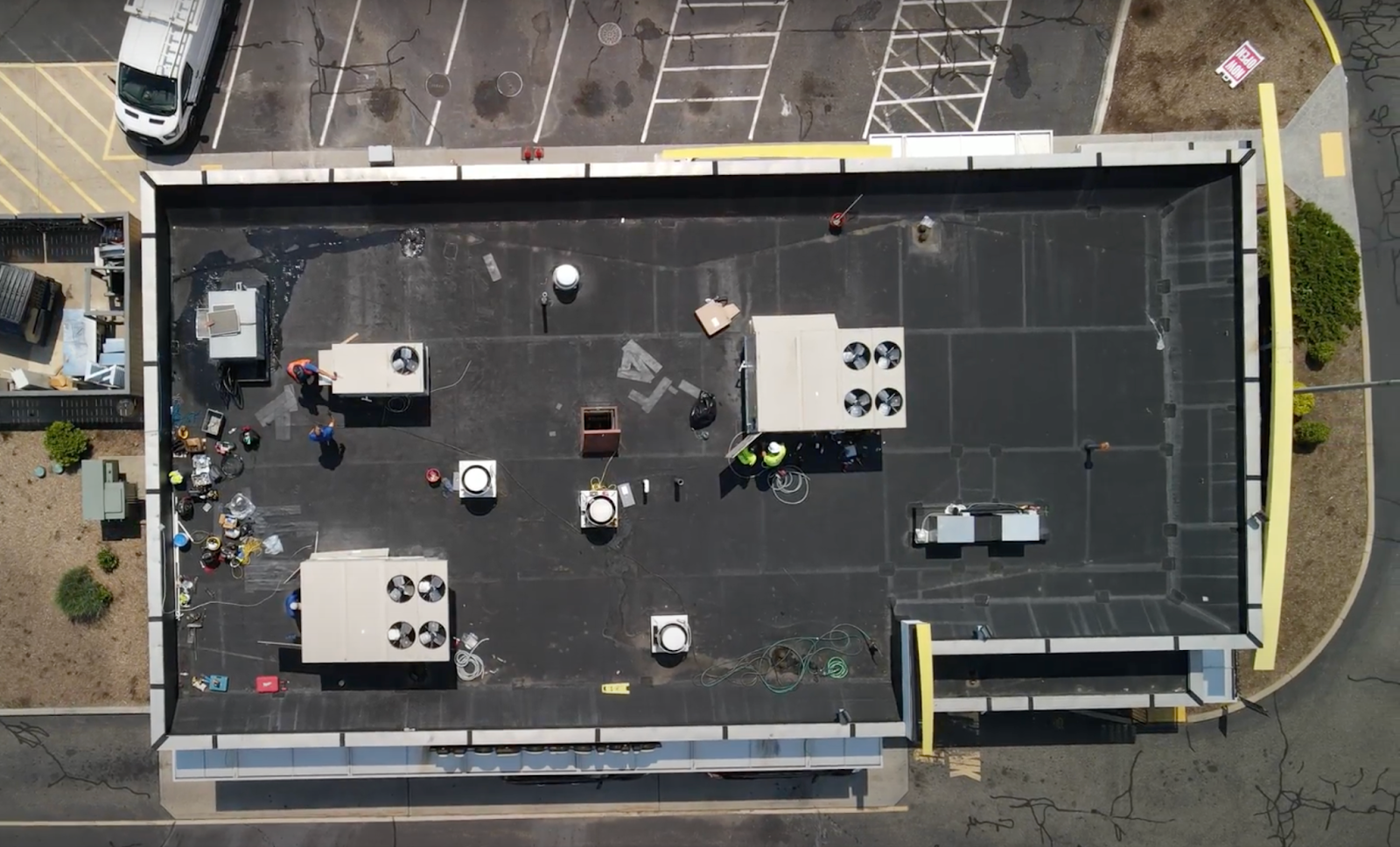
4 Benefits of Upgrading Your HVAC
Like most equipment, heating, ventilation and air conditioning (HVAC) units deteriorate with age. Old HVAC systems perform poorly and put a surprising dent in your energy bills, and repairs can be costly, especially for older models. Eventually, you will need to upgrade your HVAC systems and equipment.
Many business owners put off HVAC replacements due to steep upfront costs. However, in the long run, it can actually be more cost-effective to upgrade your HVAC system. This is because with newer and more efficient models, you’ll spend significantly less on energy to power your heating and cooling.
Energy savings is just one of many reasons you should upgrade your HVAC system. In this article, we’ll examine the benefits of HVAC upgrades, signs it’s time for one, and how to prepare for a system upgrade.
Why You Should Upgrade Your HVAC Equipment
1. Increase Energy Efficiency and Decrease Carbon Emissions
HVAC systems are one of the biggest areas where energy is lost in commercial buildings. For example, HVACs contribute to 35% of an electric bill for QSRs. Upgrading your HVAC to an energy-efficient system can reduce this by 50%.
Older HVAC models use R22 refrigerants to help produce cold air. This is harmful to the ozone layer, and the EPA banned these chemicals in 2020. Newer HVAC systems don’t include R22 refrigerants. Units sold from the beginning of 2023 use R-454b, these HVACs are less harmful to the environment.
Did You Know…
You can get a new HVAC at no upfront cost?
2. Protect People’s Health
Indoor air quality impacts everyone’s health. Poor-performing HVAC systems won’t circulate air as well as highly efficient ones. Good circulation protects people from airborne germs and is vital for people with respiratory issues like asthma.
With high-quality clean air, your employees are more productive and your customers are happier. The National Oceanic and Atmospheric Administration estimates that every year in the US, the effects of poor air quality, such as exhaustion and headaches, result in a productivity loss of more than $93 billion.
3. Maximize Comfort and Minimize Downtime
Inefficient HVAC units are prone to breakdown. An environment with frequent equipment downtime can be uncomfortable and unappealing, resulting in a decrease in both productivity and customer retention. With lower energy demands, your unit has a longer lifespan. Plus, less downtime leads to increased comfort.
Installing a smart thermostat is also a great way to maintain consistent temperatures. You can choose a programmable thermostat that automatically maintains your specified temperature each season.
4. Easier Maintenance
As systems age, their replacement parts are phased out of the market. Repairing older units gets difficult fast. Replacement parts for newer models are easier to find.
Some new models notify you when there’s an issue. You can promptly perform needed maintenance instead of straining your system for a long time. With an energy monitoring system, you can also check power usage for abnormalities.

Signs Your Commercial HVAC System Needs Upgrading
1. Your Air Conditioner or Heater Blows Little Air
Weak airflow may indicate a blockage. In this case, all you need to do is clean it. If cleaning doesn’t fix your airflow, there may be a failing compressor or leaky ducts. Leaky ducts or failed compressors need repair or replacement.
If repairs cost more than half the cost of a new system, get the new system. (And, in the long run, it pays off to get the new system.) Demand for outdated parts is lower, so the chances of finding replacement parts will pose a problem.
Surprisingly, stronger airflow increases your energy savings. You won’t need to turn your dial as high to get satisfactory results.
2. Your Unit Emits a Strange Odor
Many people presume that bad-smelling air is just burning dust. This is true for a heater that turns on for the first time all year. However, constant smells from your air ducts aren’t normal.
Burning smells might indicate mold or damage. You can clean moldy air filters, but if they frequently get moldy, upgrade them. A burning smell could also be burned-out wires.
In both cases, your HVAC is using more energy than necessary. Clean filters reduce your unit’s energy consumption by 15%. Dirty filters make your system work harder, and this is also true for faulty wiring.
3. Your Unit is Old
Generally, you should update your HVAC system every 10-15 years. This timeframe is the average EUL (effective useful life) for most HVAC units. Newer models last longer than older ones, but all will eventually deteriorate.
Typically, older units last 10 years, and newer ones last 15. Still, watch your unit’s behavior for signs it needs replacement outside that timeframe.
How to Upgrade Your Commercial HVAC System
Once you’ve decided it’s time, follow these tips for a commercial HVAC system upgrade. First, choose the right energy partner to provide your upgrade—like Budderfly, which offers energy-efficient HVAC upgrades at no upfront cost. Then, use these tips to prepare for your upgrade.
1. Energy Assessment
Energy consumption should be a priority when you upgrade HVAC system. An energy assessment reveals if your HVAC, lighting, and refrigeration are consuming more energy than is the standard for a business like yours. Your energy assessment also factors in data like square footage.
You can use this information to establish an energy baseline, which provides guidelines to when equipment is consuming too much energy.
For example, an air filtration system in a restaurant kitchen may work harder to filter out particles in the air. Energy assessments and restaurant HVAC repair can solve almost any issue.
Additionally, one common commercial HVAC system upgrade mistake is neglecting data related to your HVAC. You must also consider your building’s size, baseline temperature, and humidity.
It’s a good idea to aggregate data on everything that may affect your HVAC system. This helps you make an informed decision about the best upgrade.
2. Decision-Making
Use all your data and insights from your energy assessment to choose the right partner for your needs. When you work with an EEAAS (energy-efficiency as a service) partner, your free energy assessment and advice from trained EEAAS professionals can help you get the right HVAC.
Why Choose Budderfly for Your HVAC System Upgrade
Building on the information gathered from your free energy assessment, work with Budderfly to replace your HVAC—at no upfront cost to you. We’ll provide professional advice, help you set up ongoing energy monitoring with IoT-powered devices, and collaborate with you on ongoing preventative maintenance.
Find out why you should never ignore your equipment maintenance. Get your whitepaper today.

